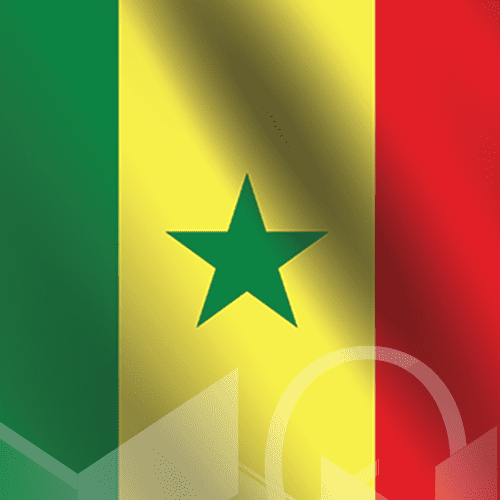
Filter
Sample Reports
Related Links
Senegal
Senegal, officially the Republic of Senegal, is a country in West Africa with a land mass of 196,839km² and 531km of Atlantic Ocean coastline. Senegal is bordered by Mauritania to the north, Mali to the east, Guinea to the southeast and Guinea-Bissau to the southwest. It has a population of 18.7 million and a GDP of US$32.4bn which is expected to grow by 8.4% in 2025.
Its currency is the CFA Franc.
Despite controversy surrounding the 2024 presidential election, including a postponement and protests, Senegal saw a democratic transfer of power from Macky Sall to Bassirou Diomaye Faye.
Senegal contains unexploited deposits of barite, chromite, coal, copper, iron ore, lead, lithium, nickel, tantalum/niobium, tin, and uranium, while gold, manganese, phosphate rock, silver, titanium minerals are mined, and it is the world’s fifth-largest zircon producer. The discovery of large gas resources, estimated at around 15tcf, has the potential to be transformational for Senegal’s economy, although it is likely this gas will be exported rather than used locally. The mining and quarrying industry contracted by 0.9% year-on-year and contributed 2.4% to GDP in 2022.
The British company Endeavour Mining operates the Sabodala-Massawa gold mine in Senegal, in which the government has a 10% stake. It is building a US$55m 37MW solar photovoltaic plant at the mine that will be used together with the existing 36MW heavy fuel oil plant and a new 16MW battery system. This will reduce electricity costs and greenhouse gas emissions and will be commissioned in Q1 2025.
Moroccan company Managem operates the Tri-K gold mine in Guinea, in which state-owned company Societe Guineenne du Patrimoine Minier holds a 15% stake. Gold production at the mine started in June 2021, with annual production of 4.0t planned from its 46.7t reserves. Moroccan company Managem is developing the Boto gold mine in Senegal, in which the government holds a 10% stake. It is expected to produce an average of 4.0t per year for 11 years.
Australia’s Woodside Energy is developing the Sangomar deepwater oil field 100km off the coast of Dakar in Senegal. BP and its partners, Kosmos Energy, Société Mauritanienne Des Hydrocarbures et de Patrimoine Minier and Senegal’s state-owned Petrosen discovered gas offshore on the maritime border of Senegal and Mauritania. In December 2019, BP announced the discovery of high-quality gas reservoirs in all nine zones of the three wells that were drilled.
DP World and the Senegal government are developing the Port of Ndayane, 50km from the Port of Dakar.
The capital, Dakar, holds about 25% of the population and almost 80% of services and corporate headquarters. A further 35% of the population lives in the so-called peanut belt in the centre of the country. The majority of farmers are subsistence farmers and the primary food crops are millet, rice, corn and sorghum. Senegal’s key export industries include phosphate mining, fertiliser production and commercial fishing.
Sources: Who Owns Whom sector reports, CIA Factbook, African Development Bank, World Bank, Trading Economics, African Statistical Yearbook and IMF. ?>
Company Profile
There is no data available at the moment
Sector Research
There is no data available at the moment
The Wholesale and Retail of Food in Senegal
Full Report R 1 900.00(ZAR) estimated $ 118.19 (USD)*
Industry Landscape R 1 330.00(ZAR) estimated $ 82.73 (USD)*


